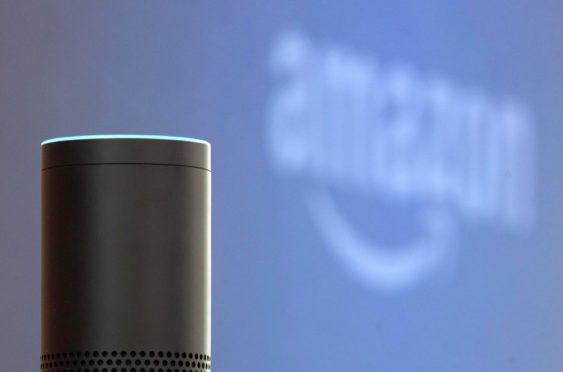
Amazon’s Alexa is set to answer people’s health queries by searching the official NHS website.
Until now, people asking Alexa a health question would be given an answer based on a variety of popular responses.
But a new partnership with the NHS means Alexa will now give answers based on information from the health service website, which has been verified by health professionals.
The plan is to help patients, especially the elderly, blind and those who are unable to access the internet in other ways, take more control of their healthcare and help reduce the burden on the NHS.
The Royal College of GPs welcomed the move but warned that independent research must be carried out to ensure the advice given is safe.
The new partnership has been spearheaded by NHSX, which launched earlier this month and aims to make health services available to patients via digital technology.
Health Secretary Matt Hancock said: “We want to empower every patient to take better control of their healthcare and technology like this is a great example of how people can access reliable, world-leading NHS advice from the comfort of their home, reducing the pressure on our hardworking GPs and pharmacists.
“Through the NHS Long Term Plan, we want to embrace the advances in technology to build a health and care system that is fit for the future and NHSX will drive this revolution to bring the benefits to every patient, clinician and carer.”
Amazon’s algorithm will use information from the NHS website to provide answers to questions such as: “Alexa, how do I treat a migraine?”, “Alexa, what are the symptoms of flu?” and “Alexa, what are the symptoms of chickenpox?”.
Professor Helen Stokes-Lampard, chairwoman of the Royal College of GPs, welcomed the move but urged caution, saying: “This idea is certainly interesting and it has the potential to help some patients work out what kind of care they need before considering whether to seek face-to-face medical help, especially for minor ailments that rarely need a GP appointment, such as coughs and colds that can be safely treated at home.
“However, it is vital that independent research is done to ensure that the advice given is safe, otherwise it could prevent people seeking proper medical help and create even more pressure on our overstretched GP service.
“While some patients might want to use symptom-checkers in this way, not everyone will be happy to do so and many people will not be able to afford the expense of this equipment, thus widening health inequalities and making access to care even harder for some of the most vulnerable people in our society.
“Patients who are frail often have more complex healthcare needs so it is important that they do not rely on this as their sole source of health advice.”
Adi Latif, who is registered blind, is a consultant at AbilityNet, a charity which helps disabled people use technology.
The 38-year-old, from Camden, London, uses Amazon Alexa and other voice-assisted technology for everyday tasks.
He said: “Convenience is king and it’s brilliant to know I can ask Alexa about various illnesses and receive credible, NHS-verified information.
“It cuts out all the searching online, which can be a traumatic experience for many people – especially those who are disabled or not familiar with technology.”
Matthew Gould, chief executive of NHSX, said: “By working closely with Amazon and other tech companies, big and small, we can ensure that the millions of users looking for health information every day can get simple, validated advice at the touch of a button or voice command.”
Tech experts predict that by 2020, half of all searches for information will be via voice-assisted technology.

Enjoy the convenience of having The Sunday Post delivered as a digital ePaper straight to your smartphone, tablet or computer.
Subscribe for only £5.49 a month and enjoy all the benefits of the printed paper as a digital replica.
Subscribe